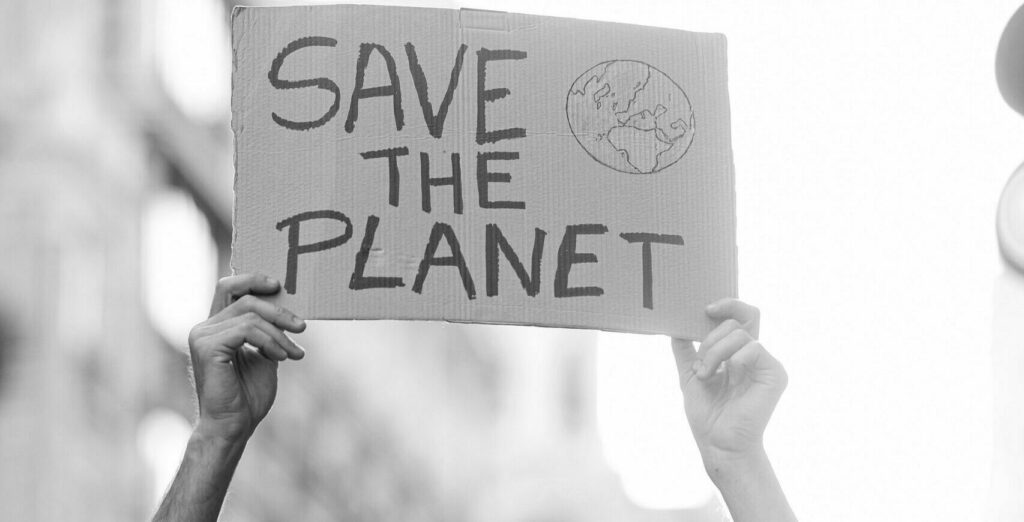2024 Presidential Scholar Essay Contest-Earth’s Temperature, Back to Baseline: Bill McKibben’s Contributions

By Evan Switzer and Megan Ellsworth
Since the 1980s, Bill McKibben has made unremitting strides toward spreading global climate change awareness. His contributions over the past decades are vast, including his roles as an educator, environmental activist, author, and founder of both 350.org and the Third Act.
These achievements are timely examples of how behavior-analytic principles can be used to catalyze behavior change at both individual and group levels toward a better future for all.
After graduating from Harvard in 1982, Mr. McKibben worked as a freelance writer throughout the mid-eighties. He published his first book, The End of Nature, in 1989, which is widely regarded as one of the first books to inform general audiences about climate change. In this publication, as well as his subsequent endeavors, Mr. McKibben emphasized both the depth of the climate crisis and human involvement in its progression.
Specifically, Mr. McKibben has consistently communicated to the public that the earth’s surface temperature has increased 1.1 degrees Celsius since pre-industrial times. This is largely the result of human activities, such as burning fossil fuels that emit enormous amounts of greenhouse gasses into the atmosphere. While this temperature increase may not appear significant upon first glance, Mr. McKibben and other scientists highlight a 1.5 degrees-Celsius increase as the “crucial temperature threshold” (350.org, 2024). At this critical point, natural disasters become more imminent, agricultural resources are depleted, and wildlife face unlivable conditions. Despite these grim possibilities, Mr. McKibben’s work provides concrete steps and encouragement for behavior change to alter the outcomes that lie ahead. His continued efforts perfectly capture Murry Sidman’s urges from Coercion and Its Fallout (2000): “We are polluting our environment on a grand scale […] we will avert this global disaster only by learning to manage our own and others’ behavior” (Sidman, 2000, p. 53).
Mr. McKibben recognized the need to influence group behavior to protect the environment. His international movement, 350.org, identifies the group as the human race, and addresses the phylogenetic level of selection.
As the temperature rises, the continued phylogenetic selection of the human race will depend on the consequences of our actions. 350.org makes strides to reduce the current financial backing for fossil fuel use and connects individuals with the resources to allocate their behavior toward sustainable energy alternatives. Mr. McKibben’s work with 350.org provides education on the consequences of our past actions that have impacted the environment and the contingencies that will shape our future actions. He aims to utilize 350.org as a vessel to shape group behavior in order to contend with, and adapt to, the situation at hand. As the temperature advances towards the critical 1.5 degrees Celsius, individuals must attend to concurrent schedules of reinforcement between the delayed reinforcer of a sustainable world, and the immediate needs and wants for daily living of individuals. 350.org addresses the global impact of behaviors contributing to the global temperature increase and the consequences that will affect the human race.
Mr. McKibben reflects on his own behavior and the behavior of his generation, understanding that during the 1980s and 1990s, individuals in their 20s and 30s (himself included) were greatly influenced by consumerism. Now, in the 21st century, Mr. McKibben is building on his experience through his grassroots political campaign of the Third Act. He notes that the Baby Boomer demographic controls the majority of the nation’s wealth, has more access to free time, and was 50% more likely to vote in 2020 (Third Act, 2024). The motivating operations of Boomers in their younger years were focused on buying houses, filling them with possessions, and buying a station wagon to drive around the family. Alternatively, The Third Act aims to mobilize Baby Boomers to vote for legislation that is aimed toward a larger delayed reinforcer of a sustainable world, even though they may never contact it. This act of altruism can be seen as a contributing factor toward the phylogenetic selection of the human race. The old Greek proverb that “a society grows great when old men plant trees in whose shade they will never sit” can be considered the guiding light for the Third Act.
Bill McKibben’s multifaceted work is critical for the preservation and continuation of planet Earth. The behavior-analytic conceptualization of Mr. McKibben’s work recognizes the contingencies that are developed for both group and individual behavior to allow for continued life on this planet. By understanding these principles of behavior in connection to Mr. McKibben’s work, we can continue in his footsteps and direct behavior change toward a brighter, more sustainable future.
References
350.org. (2018, October 16). 1.5°C = Zero Fossil Fuels. 350. https://350.org/?super_pages=1-5c
Sidman, M. (2000). Coercion and Its Fallout. Authors Cooperative Inc. Publishers.
Third Act. (2023, July 18). Safeguarding our Democracy. Third Act. https://thirdact.org/our- work/safeguarding-our-democracy/


